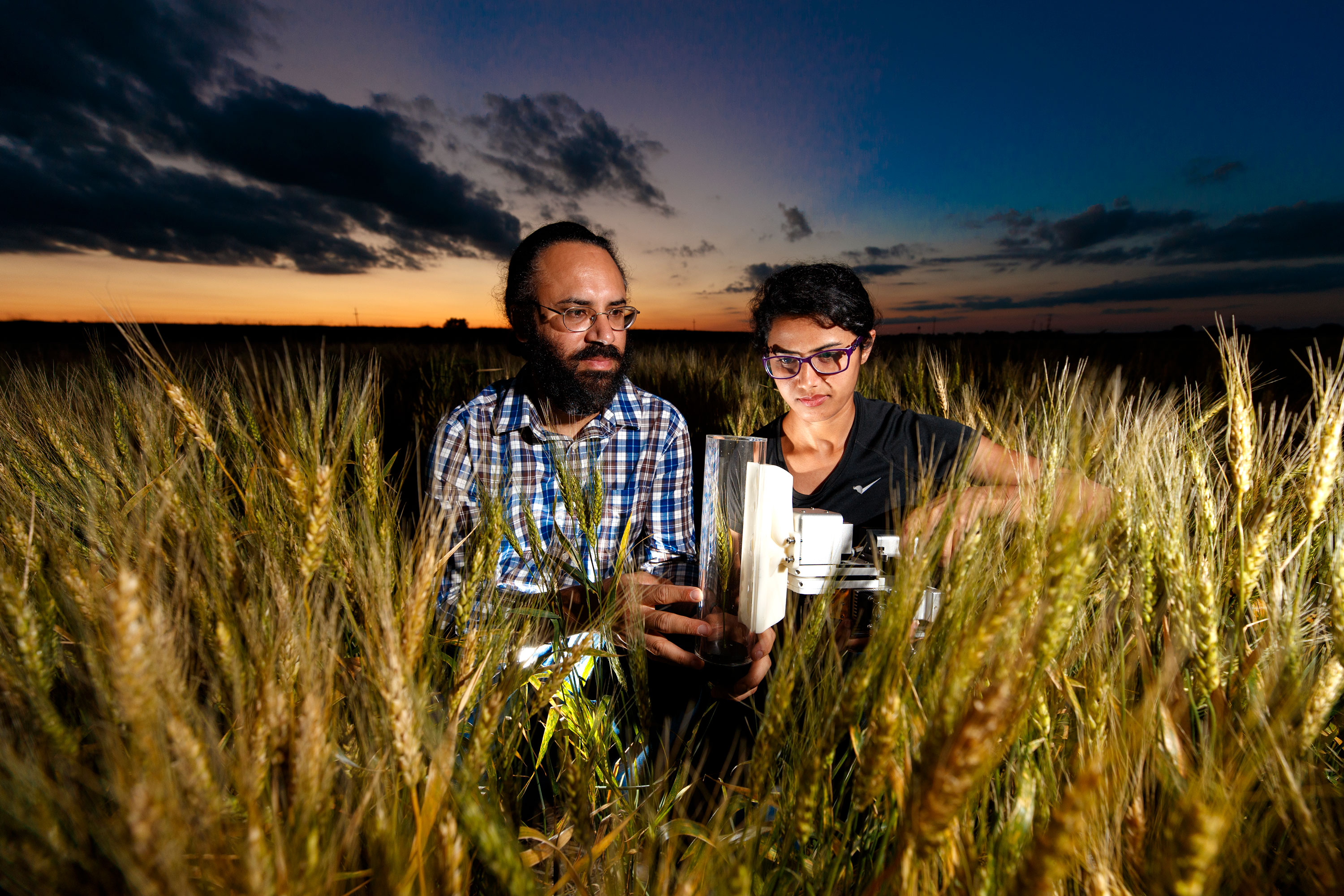
This fall’s Agronomy and Horticulture Seminar Series begins with “Improving Heat Resilience in Cereals” presented by Nebraska’s Harkamal Walia at 3:30 p.m. Sept. 6 in Keim Hall, Room 150, East Campus.
Walia, associate professor of agronomy and horticulture and Daugherty Water for Food Global Institute Faculty Fellow, will talk about higher global temperatures during cropping seasons, which are resulting in yield losses. Part of these losses are due to higher nighttime temperatures during grain development.
He will present work aimed at elucidating the physiological and molecular basis of these yield losses in two major cereals, wheat and rice. According to Walia, high temperature resilience of these two crops, which collectively provide more than 50% of the human caloric needs, is essential for sustaining future food production.
This seminar will not be streamed or recorded.
Each talk is in Keim Hall, Room 150, and can also be watched online, unless otherwise noted. All seminars are free and open to the public and refreshments will be served at 3 p.m.
Dates and topics for the series are as follows:
• Sept. 13: “Integrating Design, Analytics, and Genomics in Crop Improvement,” JIANMING YU, professor and Pioneer Distinguished Chair in Maize Breeding, Department of Agronomy, Iowa State University.
• Sept. 20: “Pollinator Health and Conservation Efforts in Nebraska,” JUDY WU-SMART, assistant professor and extension specialist, Department of Entomology, Bee Lab, University of Nebraska–Lincoln.
• Sept. 27: “Regenerative Agriculture — from the Soil to the Table,” JOSEPH AND MATTHEW BRUGGER, Upstream Farms; STEVE TUCKER, AgriForce Seed; KATIE KREUSER & BEN MCSHANE-JEWELL, assistant extension educators, Metro District, seminar moderators.
• Oct. 4: “Río de la Plata Grasslands — a South American Tallgrass Prairie? Floristic and Ecological Similarities and Management Implications,” BIANCE OTT ANDRADE, postdoctoral research associate, Department of Agronomy and Horticulture, University of Nebraska–Lincoln.
• Oct. 11: “Why Diversity Matters: From Disease Management to the Next Big Scientific Breakthrough,” SYDNEY EVERHART, associate professor and quantitative ecologist, Department of Plant Pathology, University of Nebraska–Lincoln.
• Oct. 25: “A Multiomic Approach at the Single Cell Level to Better Understand the Transcriptional Regulation of Plant Genes,” MARC LIBAULT, associate professor, Department of Agronomy and Horticulture, University of Nebraska–Lincoln.
• Nov. 1: “The Biogeochemistry of a Fertilized Landscape: Are Nebraska Rivers and Streams Pipes or Processes of Nutrients?,” JESSICA CORMAN, assistant professor, School of Natural Resources, University of Nebraska–Lincoln.
• Nov. 8: “Connecting with Growers through a Peer-to-peer, Experiential Program Titled TAPS,” DARAN RUDNICK, assistant professor, irrigation management specialist, Biological Systems Engineering, West Central Research and Extension Center, University of Nebraska–Lincoln.
• Nov. 15: “Understand Maize Productivity and Adaptation via Omics Data Modeling,” JINLIANG YANG, assistant professor, Department of Agronomy and Horticulture, University of Nebraska–Lincoln.
• Nov. 22: “Metabolic Modeling and ‘Omics’ Data Integration in the Context of Plant Systems Biology,” RAJIB SAHA, assistant professor, Chemical & Biomolecular Engineering, University of Nebraska–Lincoln.
• Dec. 6: “Rangeland Research in Western Nebraska,” MITCH STEPHENSON, assistant professor and range management specialist, Department of Agronomy and Horticulture, University of Nebraska–Lincoln.
More details at: https://agronomy.unl.edu/seminars